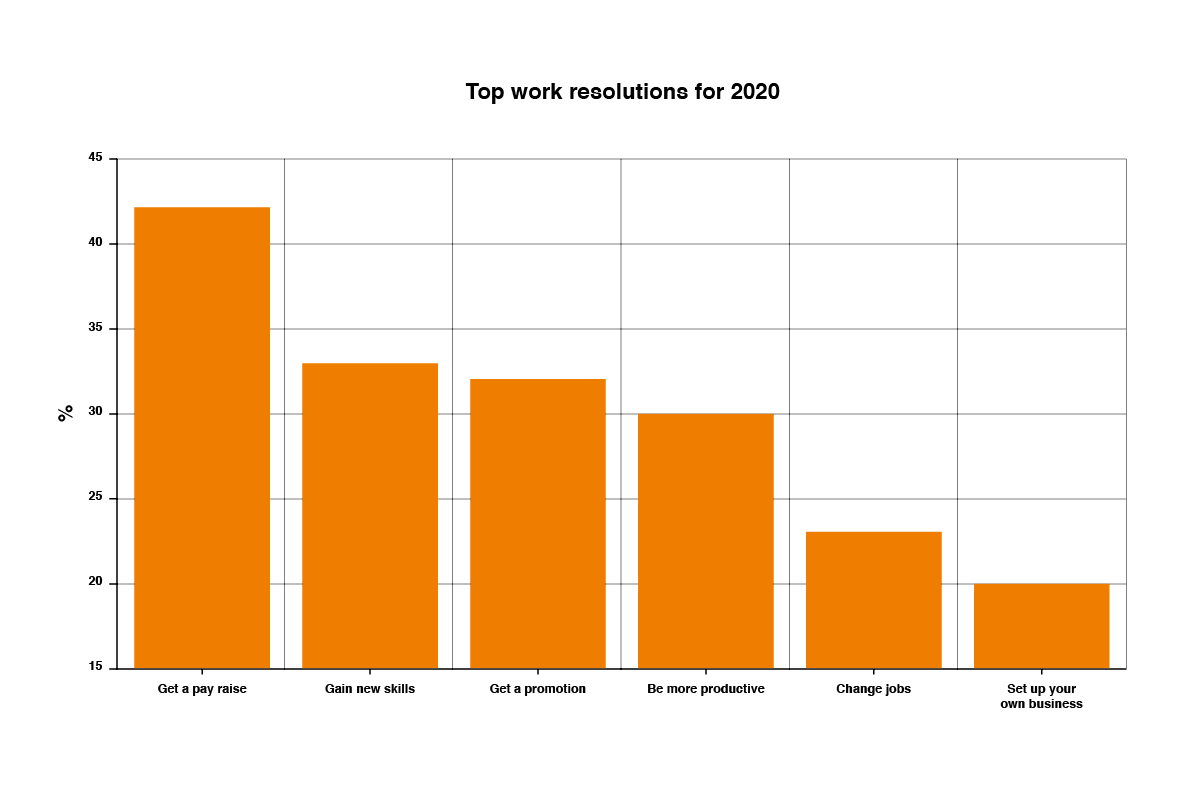Here we go again: new year, new year’s resolutions. Starting with work-related ones. You’re certainly not alone: according to the American Psychological Association, 93% of people set themselves a goal in January. It’s a shame, then, that half of us will have given up by February.
An upstanding 19% of people manage to follow through on their resolutions for another two years. How?
1. Don’t make resolutions.
Instead, set yourself a series of little tasks. Break your goal down into activities you can write on a calendar and tick off as you achieve them. The resolution “I will improve my foreign language skills” could be converted into a succession of tasks such as: “by the end of January, I have to sign up for a language course; every week until May, I have to learn ten new words; by November, I need to take a foreign language exam.”
2. Take the uncertainty factor out of the equation.
Every challenge is affected by a certain number of unforeseeable factors. Constructing scenarios and hypotheses in a bid to control them is a waste of energy. Before a job interview, you can’t know what questions the interviewer will have, or do anything about them being in a bad mood on that day of all days. Take a sheet of paper and list the variables in your plan that you can address directly (such as how prepared you are) and, on the back, list the ones you have no control over. Focus your efforts on just the first list: you’ll see your anxiety ease and will gain greater control over your objectives.

3. Know yourself.
Motivation is strictly linked to an individual’s specific “character strengths” as coaches call them. Such as? If you’re a very sociable person, rather than spending your evenings trolling through listings, you might find it easier to seek a new job by tapping into your personal network of family and friends. Having a clear idea of what our character strengths are helps us determine the most effective strategies.
4. Visualize objectives as rewards.
Images like a tropical beach or the home office of your dreams make resolutions like “I will get an increase” or “I will work from home” more tangible. Once you’ve reached your goal, choose the reward you’ve assigned yourself and make room on your desk for a photo.
5. Get yourself an ally.
Compile a list of people who might be able to help you: an expert co-worker you can ask for a tip; a friend to go with you on a refresher course; a professional you can turn to for advice.
6. The evening recap.
A resolution’s worst enemy is the daily routine. With all those countless little tasks to deal with, we lose sight of the bigger objectives. And in the end, months go by without us making any headway. What’s the antidote? Every evening, we can take a couple of minutes to go over the positive things that have happened during the day and repeat our resolutions out loud. In the long term, the motivational blend of “gratitude + faith” serves as an autopilot to keep us on the course we have set.
7. Get started.
Not tomorrow and not in an hour’s time. Now! 2020 has begun and so has your redemption.


